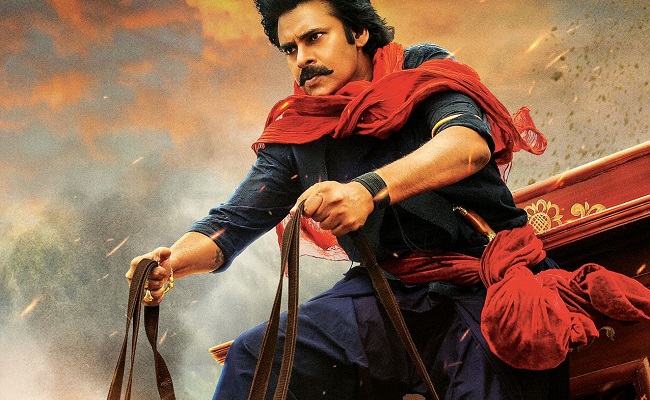
Hari Hara Veera Mallu was built on an intriguing premise — rooted in Sanatana Dharma, it promised an epic journey to reclaim the Koh-i-Noor diamond from Delhi and rescue dharmic protectors imprisoned by the Mughal Empire.
The idea was sound, the concept noble. Yet somewhere along the way, the execution missed the mark. The result: a box office failure that left distributors in Andhra Pradesh badly burnt.
The film, reportedly sold for around ₹50 crore across Andhra (excluding Ceded), has barely managed to recover half that amount.
With new films like Kingdom entering theatres this week, Hari Hara Veera Mallu is already fading from public view.
Distributors are staring at losses, and Tuesday’s collections show the film has slipped significantly in most regions.
In Uttarandhra, the film was bought for ₹12 crore, but ₹4–5 crore still needs to be recovered. The buyer isn’t a regular distributor, which makes the loss even harder to absorb.
In East Godavari, there were no official buyers. Instead, theatre owners directly paid advances to the producer — nearly ₹6 crore in total. Now, each theatre is reportedly facing deficits ranging from ₹1 to ₹4 lakh.
The situation in West Godavari is also concerning. The distributor had past dues from the producer, which were adjusted against the current deal. But now, even that adjusted amount appears to be a loss.
In Guntur and Nellore, a cautious distributor who usually plays it safe bought the film for ₹12 crore. He now stands to lose nearly ₹3 - 4crore. Krishna district is witnessing similar losses.
Adding to their burdens, distributors across Andhra Pradesh owe around ₹10 crore in GST payments. Even if producers decide to absorb these taxes, it’s uncertain whether they have the financial capacity to do so.
Ceded is facing similar struggles, while the exact recovery figures in Nizam are unknown. Reports suggest that the producer earned around ₹33 crore from Nizam, but only ₹17 crore has reportedly been recovered so far.
Despite a solid concept and noble intentions, Hari Hara Veera Mallu has ended up as a financial disaster — an emotional and economic tragedy for those who believed in its potential.














